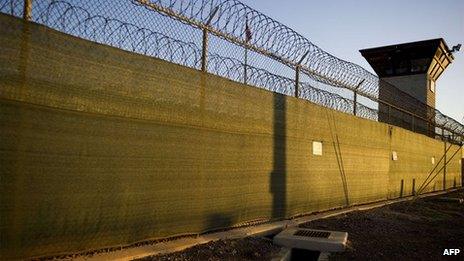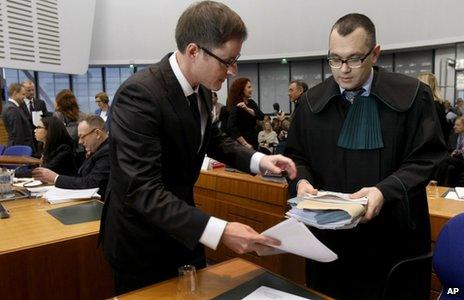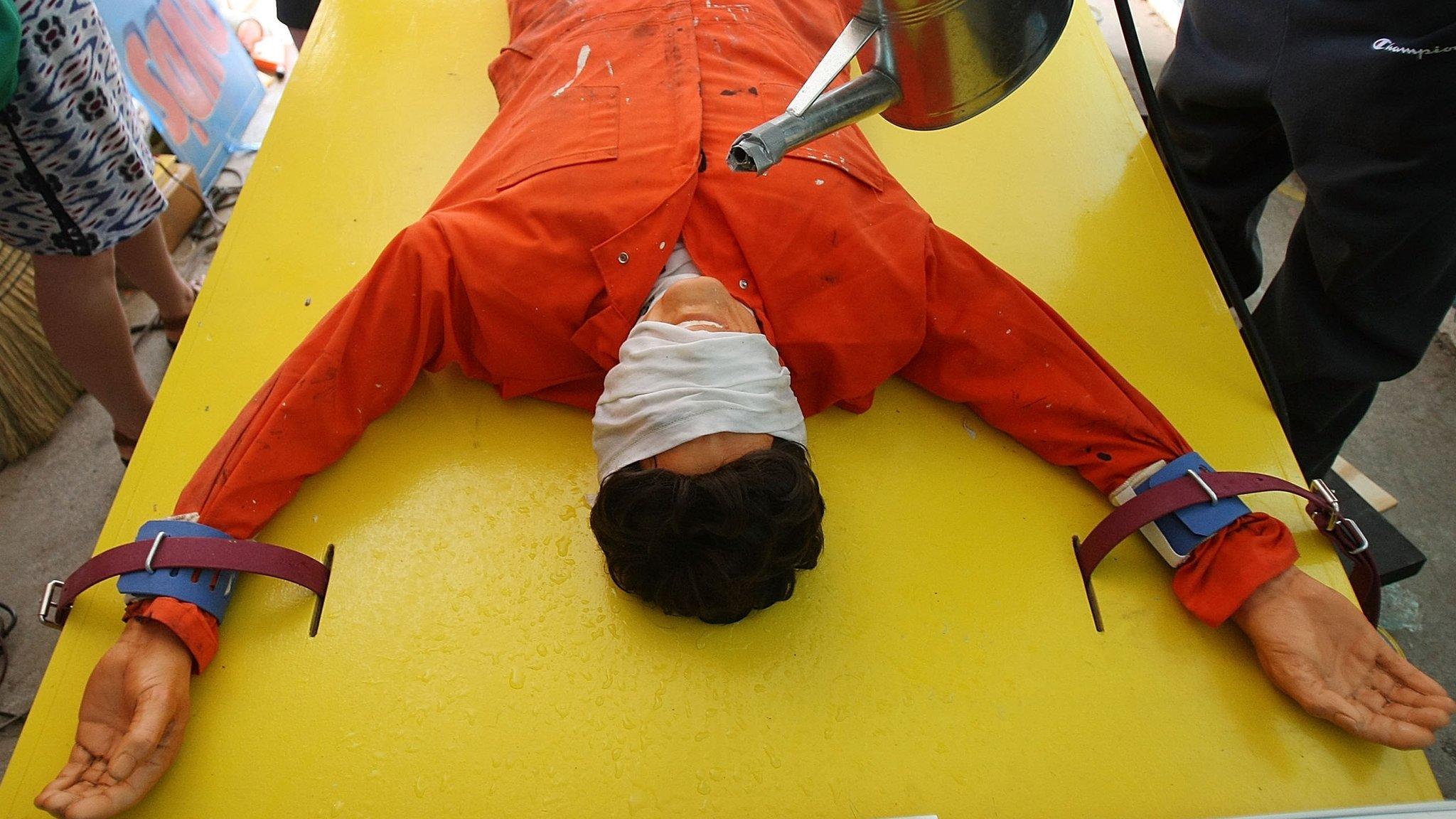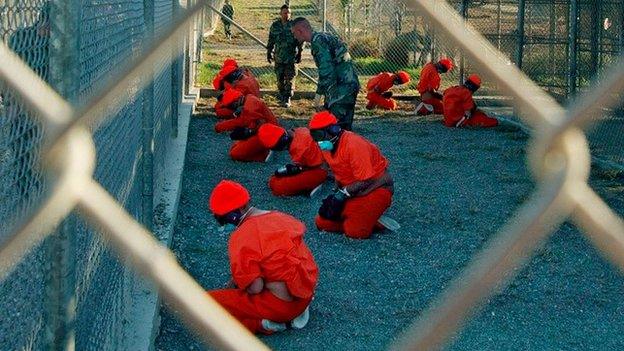Two terror suspects sue Poland over 'CIA torture'
- Published

The US is holding 164 terror suspects at Guantanamo Bay
The European Court of Human Rights is hearing a case brought by two terror suspects who accuse Poland of conniving in US human rights abuses.
The two men are currently held at the US Guantanamo Bay prison in Cuba.
It is the first time that allegations about a CIA "black site" prison in a European country have been heard in an open court.
Abu Zubaydah and another al-Qaeda suspect say they were tortured at a secret prison in Poland in 2002-2003.
Nearly a year ago the court ruled against Macedonia for abuses suffered by Khaled el-Masri, another suspect who was held for CIA interrogation.
Abu Zubaydah, a 42-year-old Palestinian, allegedly made travel arrangements for jihadis loyal to Osama Bin Laden, including those who carried out the September 2001 attacks in the US.
The other suspect in the Poland case is Abd al-Rahim al-Nashiri, 48, a Saudi accused of organising the 2000 attack on the USS Cole warship in Yemen, in which 17 sailors died.
Their lawyers are representing them in Strasbourg and a court statement said their submissions are based mainly on publicly available sources, because of the restrictions imposed at Guantanamo Bay.
Only part of the hearing is public - the rest is being held behind closed doors.

Mr Nashiri's lawyers accused Poland of turning a blind eye to CIA abuses
'Extraordinary rendition'
The two men allege that they were subjected to torture, other ill treatment and incommunicado detention in Poland, while in US custody.
The "waterboard" technique - simulated drowning - was among the methods allegedly used during their interrogation. Their lawyers also say the men were subjected to mock executions in Poland and told their families would be sexually abused.
The men were allegedly flown to Poland on the same "rendition plane" in December 2002.
Reports by a Council of Europe investigator, external, Swiss senator Dick Marty, detailed "war on terror" operations by the CIA in several European countries. He named the Polish detention centre as Stare Kiejkuty, an intelligence training base near Szczytno in northern Poland.
The Strasbourg judges will deliver their verdict on the case at a later stage.
Former President George W Bush authorised the rendition policy shortly after the 9/11 attacks to allow the CIA to interrogate terror suspects secretly outside the US.
Crofton Black, an investigator at the human rights campaign group Reprieve, said: "European support for the CIA's torture programme is one of the darkest chapters of our recent history - it is encouraging that the court now looks set to bring it to light, where the [Polish] government has sought to sweep it under the carpet."
"We have now heard overwhelming and uncontested evidence that the CIA was running a secret torture prison on Polish soil, with the Polish government's knowledge.
"The Polish government has failed to contest that it knew prisoners were being held beyond the rule of law and tortured by the CIA inside their own country. It has also become clear that the Polish government's investigation into the issue was in reality nothing more than a smoke-screen, which was neither designed nor intended to get to the truth," he said.
A lawyer representing Poland said the Polish authorities should be allowed to complete their own investigation into the claims first.
In December 2012 the judges ruled that Macedonia had violated the rights of Khaled al-Masri, a Lebanese-born German citizen, and ordered Macedonia to pay him 60,000 euros (£50,000; $82,000). He was kidnapped in Macedonia in 2003, flown to a secret jail in Afghanistan and tortured there.
- Published16 June 2015

- Published9 May 2012

- Published10 December 2014
